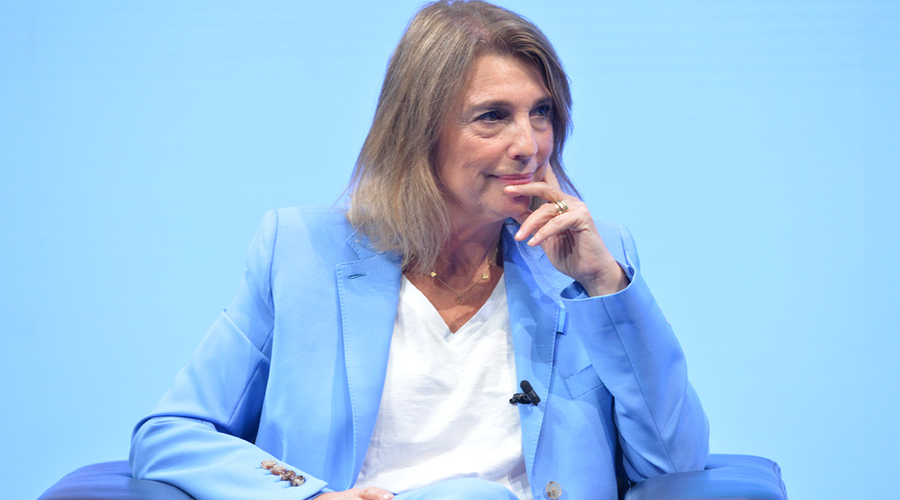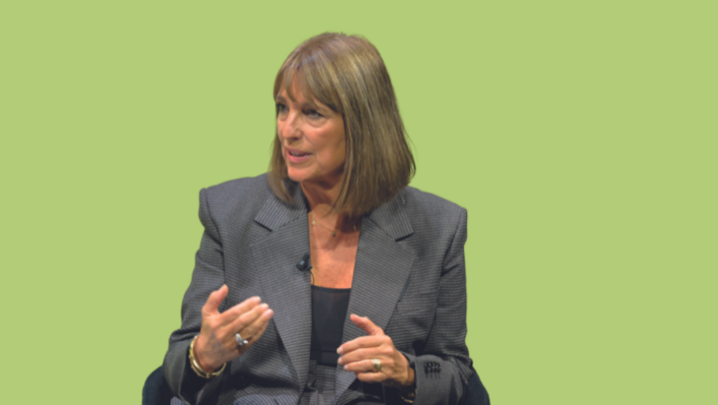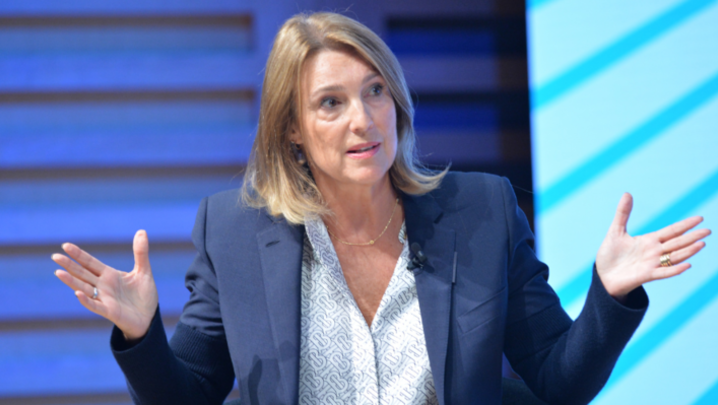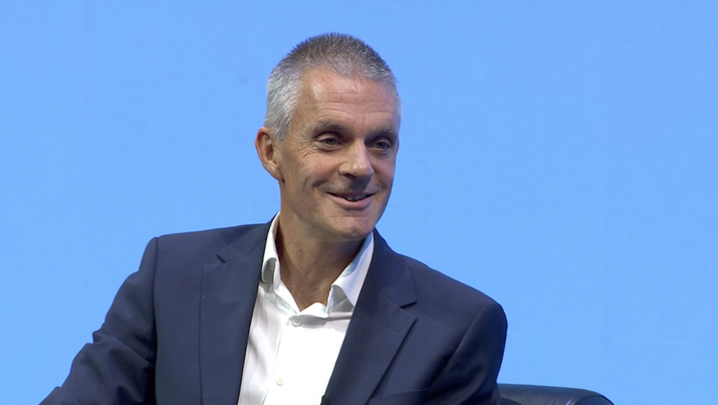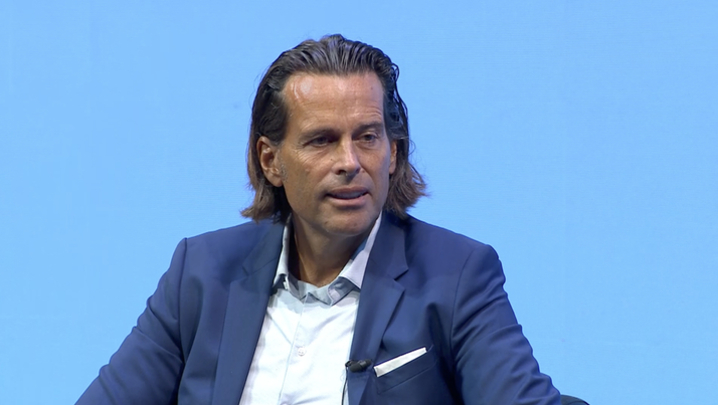The pandemic has accelerated ITV’s transition from advertising-supported broadcaster to diversified digital media business
For ITV, the pandemic forced the company to do some hard thinking. Advertising revenue fell off a cliff in the second quarter of 2020, programme budgets were slashed, and senior executives took voluntary pay cuts.
“Commercially, we were very worried about our cash situation in the first three or four months of the pandemic,” CEO Carolyn McCall told her interviewer, BBC News’s Dharshini David. “We took some dramatically difficult decisions in the first three weeks of the pandemic because we had to preserve our cash.”
Eighteen months later, ITV has emerged stronger from the crisis, according to its CEO. ITV’s digital transformation was accelerated by the crisis, and the pandemic showed how resilient the company could be as it rapidly learnt to work remotely.
“People worked hard through some very testing times. From the moment lockdown hit, our daytime shows and our national and regional news programmes were not off air for a minute,” added the CEO. “Audiences wanted and needed what they provided. Our daytime programmes were a pick-me-up and helped to reassure people.” ITV had proved that it was “robust, resilient and trusted”.
The advertising market has now recovered. In June, the network registered record-breaking ad revenues on the back of England’s success in the Euros. But ITV still needs to prove to sceptical City analysts that the business is strong enough to compete effectively in a world where US streamers call so many of the shots.
McCall emphasised: “It was a very tough period but, as we went through it, we realised we could accelerate some of the changes we had been planning. We created the media and entertainment division and ramped up our communication. We did a lot on diversity and inclusion.…We were able to take decisions on ITV Hub because all our tech teams could work normally at home.”
McCall told David that ITV’s business was no longer primarily reliant on linear advertising revenue, following the group’s investment in digital advertising, the continued growth of ITV Studios’ domestic and global activities, and the development of digital businesses such as BritBox, ITV Hub and Hub+.
“We have a diversity of business models,” she explained. “Probably 50% of our funding now comes from advertising and part of that is coming from digital, not linear. The other 50% is Studios, including interactive and other things we’re doing. How we make money had to change.”
She added: “We’re already an advertising leader. We have to remain that because it’s so hard to make profit.”
The partnership with ad-tech platform Amobee enables ITV to sell targeted, personalised advertising via Hub. “That is transformational,” said McCall. “We’re taking significantly more money from AVoD than we were three years ago. That is a new stream for us.”
Looking at the broader picture, McCall, the former EasyJet leader headhunted to run ITV four years ago, acknowledged that, when she arrived at ITV, the broadcaster was “doing very well financially”. A lot of money had been invested in production and that side of the company’s activities was growing.
However, she noted that technology, data analytics and the capabilities that lie behind those areas lacked investment. ITV’s online catch-up service, Hub, trailed behind the BBC’s iPlayer.
“There was therefore a lot of work to do,” said McCall, who added: “You can see the macro changes all around you. The streamers are very much part of that. We have to innovate and develop. For us technology is a great disruptor but it’s also a great opportunity and enabler. We weren’t taking advantage of any of that.”
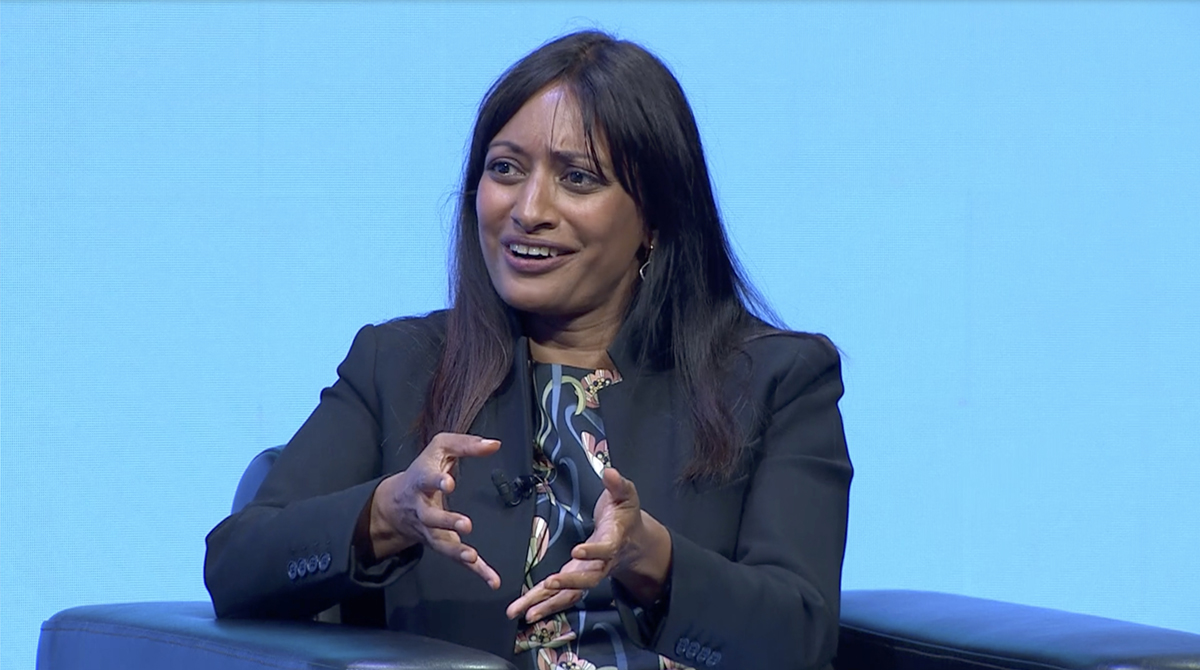
ITV would continue to deliver mass audiences but developing Hub and understanding users alongside viewers involved developing a different mindset. Studios would continue to expand because it was “another pillar of profit for us”, designed to complement the ad-funded businesses. It was important, too, for ITV to establish itself in direct-to-consumer, hence the UK launch of BritBox in November 2019; the service had around 555,000 UK subscribers, McCall told the RTS. “[It] was an amazing leap forward for all of the UK PSBs to be able to agree to do BritBox.”
She promised “an aggressive” BritBox roll-out in many other countries following recent launches in Australia and South Africa. “We’re now in phase two of that as we become more sophisticated in growing our direct-to-consumer businesses.… Also, if you’re not available on any [particular] platform and not doing that well, you get left behind.”
ITV’s unique advantage in such a competitive landscape was the “enormous amount of content” it owned. “In terms of our windowing strategy, we’re going to do much more. We’ve done some windowing but not enough of it. Going forward, that will change quite dramatically.”
As for ITV’s relationship with the streamers, McCall said that they were customers as well as rivals. Like them, ITV Studios was a global business: Love Island, which ITV created, is produced in 17 countries while The Voice, another ITV property, is made in 70 countries.
“Our relationship with the streamers is very straightforward. They like a lot of what we do, and they commission us to make it. We do that successfully.”
Throughout the Convention, attempting to define Britishness was a recurring theme. How did the ITV CEO define this most elusive and potentially toxic term? “Globally, Britishness means high-quality British content originated in Britain – stories originated in Britain that most of the time feature British talent. There is a lot of demand for British content.”
Domestically, ITV was content to remain a commercial PSB provided new communications legislation provided the right terms, particularly on giving PSBs prominence in the digital space.
Was the Government good at listening, hearing and acting, pressed David? “DCMS are good at listening. I’ve yet to see evidence of the acting…It’s all to play for. They’ve got so much information from all of us about the change. They can see it happening in front of their eyes. They value the PSBs. Throughout lockdown the PSBs were a lifeline for people, providing accurate, trusted news. I do think the Government valued that.”
Inevitably, McCall was asked about ITV as a potential buyer for Channel 4 should ministers decide to privatise the state-owned operator. As the person who “trimmed the fat” from EasyJet, the opportunity to streamline Channel 4 was obvious, suggested David.
“It’s incredibly important that Channel 4’s remit remains because it works in an ecology of public service broadcasting,” replied McCall, who declined to be drawn further or whether a potential bid was on the horizon.
The ITV CEO is a keen tennis player. She had enjoyed watching Emma Raducanu’s stunning victory at the US Open. “I watched it on Prime,” McCall said pointedly to howls of laughter from the audience. Millions of people had enjoyed the match on Channel 4.
She revealed that ITV had been outbid by Horseferry Road for the tennis tournament: “We have to make a return. We really wanted it, [but] we had to make money, that’s our model.”
Regarding the future, McCall expressed cautious optimism over the state of the UK TV ad market: “There’s definitely a bounce back. At the moment, it’s very buoyant, which is fantastic. I hope that will last but we don’t yet know how the winter will pan out and we don’t know what will happen next year.
“There remains uncertainty. I am fine with uncertainty because we have a robust business. We have a more resilient business now than when we went into lockdown. We can absorb the uncertainty.
“We just have to keep moving ahead and maintain our momentum. In three years, we’ve achieved an awful lot.”
Session Six: ‘UK keynote: Carolyn McCall’. The ITV CEO was interviewed by Dharshini David, senior correspondent and presenter, BBC News. The producers were Sue Robertson and Martin Stott. Report by Steve Clarke.

